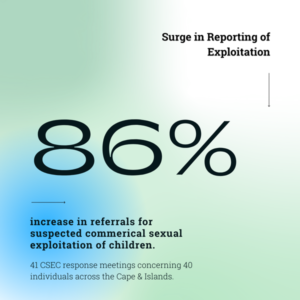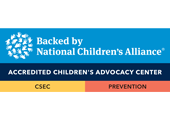The Rise of Online Sexual Exploitation is Becoming the Norm
September 22, 2022
Online sexual exploitation of children remains high. In one year’s time, from 2020 to 2021, online exploitation rose by 35% and increased to more than 73% from pre-pandemic levels, according to the National Center for Missing and Exploited Children.
Across our region we have seen sexual exploitation take place on computers, tablets, phones, video game consoles, school-based Chromebooks, tablets, iPads and through Apps associated with school use. The most prominent Apps where exploitation has taken place, discussed, or coordinated have been Snapchat, Discord, Facebook Messenger, Instagram, Chat Roulette, WhatsApp and Omegle. The risks abound in the online world, and it is not getting better. The bottom line is that within these particular Apps or outside of them, if a child has access to the internet, they are at risk of exploitation.
So, who is at risk? The National Center for Education Statistics reports that in 2019, 95% of children between the ages of 3 and 18 in the United States, had access to the internet. Their access came either through a mobile device, computer, laptop / tablet, or gaming console.
Then the Covid-19 pandemic hit, which resulted in billions of dollars invested into updating internet-based systems access across the country. In addition, the purchase of internet enabled devices skyrocketed due to a surge of everyone working and attending school from home. Over the last few years, even children entering pre-school have brought electronic school tablets home.
Child sexual abuse material, otherwise known as child pornography, is routinely observed online by teens to the point it is becoming normalized and might be overlooked by mandated reporters.”
What is troubling is that sexually explicit content on the internet has also been on the rise for several years. Child sexual abuse material, otherwise known as child pornography, is routinely observed online by teens to the point it is becoming normalized and might be overlooked by mandated reporters.
Even more troubling is that “sexting,” or sending sexually explicit text messages and images, has become a social norm for kids and teens. Sending a nude to someone is as common as passing a note was in pre-cell phone days. It is surprising to note that it is no longer a horrifying or embarrassing event when a sexual or nude photograph is sent to a group of people – the situation is now such a common occurrence there is little or no alarm. At times, these images live right in the group chat of a child’s main friend group on their phone, the place a parent would never suspect. With the virtual world regularly intertwined in the real world, dating and sexual exploration regularly resides in online spaces, with nearly no discussion of values or social norms.
This enmeshment of the online and real world has significantly limited a parent’s options of restricting internet accessible devices from their children. It is no longer feasible for a parent to think, “Well, they just won’t have a phone or a computer, that’s it.” To help protect their children, parents need to have conversations with their children about body and online safety. It is important to set ground rules for internet usage and access. And it is paramount that parents have those difficult conversations about online exploitation with their children from a very young age.

The more parents engage with their child’s online life, discussing the reality and risks, the more likely children will confide in their parents when issues arise. It is important that kids and teens know that if they make a mistake, they can have a calm non-judgmental conversation with their parents and ask for help. Children need to know that their parents will always believe in them, advocate for them and put their health and safety first. At Children’s Cove, we are here to give support to parents across the Cape and Islands.
Additionally, we want to remind to mandated reporters across the Commonwealth: if a child has had a photo or video taken of them, and they are under the age of eighteen, it is child sexual abuse material. If you have a reasonable belief or suspicion that a child has been victimized in this way, you are required to follow the reporting requirements for the state of Massachusetts. The impact of a child being victimized for their lifetime is more than enough of a reason to file a report and support them.
To learn more about the sexual exploitation of children, visit our page here.






